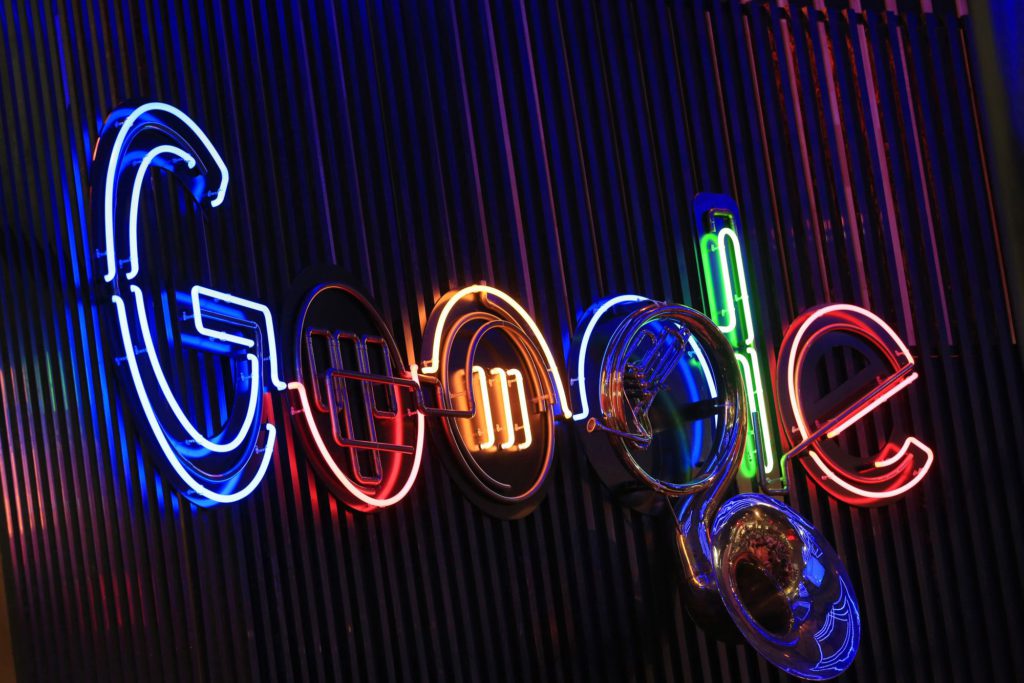(Bloomberg) — Google delivered turbocharged sales growth in the past quarter, underscoring its status as the world’s most potent advertising engine. The internet giant took advantage of an uneven pandemic reopening, catering to homebound users spending more time on screens as well as consumers venturing out to shop and travel.
Second-quarter sales for Alphabet Inc., Google’s parent, surged past Wall Street estimates, due to a swell of ads from retail marketers eager to encourage consumer spending — through e-commerce on YouTube and by physically returning to stores.
Revenue, excluding payments to distribution partners, was about $51 billion in the period ended June 30, the Mountain View, California-based company said Tuesday in a statement. Analysts projected $46.1 billion, according to data compiled by Bloomberg. Profit was $27.26 a share, topping the average estimate of $19.35.
After a digital-ads slowdown a year ago during the Covid-19 pandemic, Google’s advertising business has rebounded. The increase in digital advertising sales in the quarter echoed similar results reported last week by social media companies Twitter Inc. and Snap Inc., with all shrugging off any concerns about how the highly contagious Covid-19 delta variant could affect marketing budgets on their platforms. Google, the leader in digital advertising, is on target to finish the year with almost 29% of the global market, according to analyst EMarketer.
The sales growth “reflect elevated consumer online activity and broad-based strength in advertiser spend,” Chief Financial Officer Ruth Porat said in the statement.
In a conference call after the results, Chief Business Officer Philipp Schindler said retail was “by far” the biggest contributor to the bump in advertising, with the travel, financial services, media and entertainment sectors also growing during the quarter.
Alphabet Chief Executive Officer Sundar Pichai has targeted e-commerce as a major growth area for the internet giant. He deepened his company’s relationship with Shopify Inc., to sharpen its commerce efforts while it continues to chase Amazon.com Inc. Subsidiary YouTube has also joined in. The world’s largest video platform bought an Indian company, Simsim, earlier this month to push deeper into video commerce.
Google has become a chief target of antitrust regulators around the world, who have alleged the company has rigged swaths of the internet to kneecap rivals and aid its growth. The company is facing four lawsuits at home, one from the U.S. Department of Justice and the other three brought by coalitions of state attorneys general. The European Union also formally opened an antitrust probe into Google’s ad technology business last month.
Shares gained about 3% in extended trading after closing at $2,638. The stock has jumped 50% this year.
Search and other related businesses generated fiscal second-quarter sales of $35.8 billion. Analysts, on average, estimated $32.2 billion.
YouTube ad revenue jumped 84% to $7 billion. Analysts were looking for $6.33 billion.
“YouTube was the fastest-growing segment during the quarter and points to the continued strength of video advertising for both direct response and brand goals,” said Nicole Perrin, EMarketer principal analyst at Insider Intelligence. “Growth in Google’s Network was the slowest among the three segments, but represented the strongest overperformance compared to our expectations — suggesting the overall programmatic display market continues to grow strongly.”
The company’s cloud division, led by Thomas Kurian, has gained some market share but still lags far behind leaders Amazon Web Services and Microsoft Corp. Google Cloud revenue jumped 54% to $4.63 billion, beating Wall Street expectations of $4.3 billion. The unit narrowed its operating loss to $591 million from $1.42 billion, helped, in part, by a reduction in depreciation expense after the company adjusted the estimated useful life of is servers to four years from three years.
Payments to Google’s distribution partners such as Apple Inc. increased 63% — about the same growth rate as revenue. The company added 13% more employees in the quarter, bringing its total workforce to more than 144,000.
Amid antitrust scrutiny about Google’s imbalanced relationships with partners, Pichai said that in the last quarter, the company paid a record amount to publishers and YouTube creators who use its services.
“We saw a rising tide of online consumer and business activity,” he said. “We’re proud that our services helped so many businesses and partners.”
(Updates with YouTube revenue chart.)
More stories like this are available on bloomberg.com
©2021 Bloomberg L.P.











